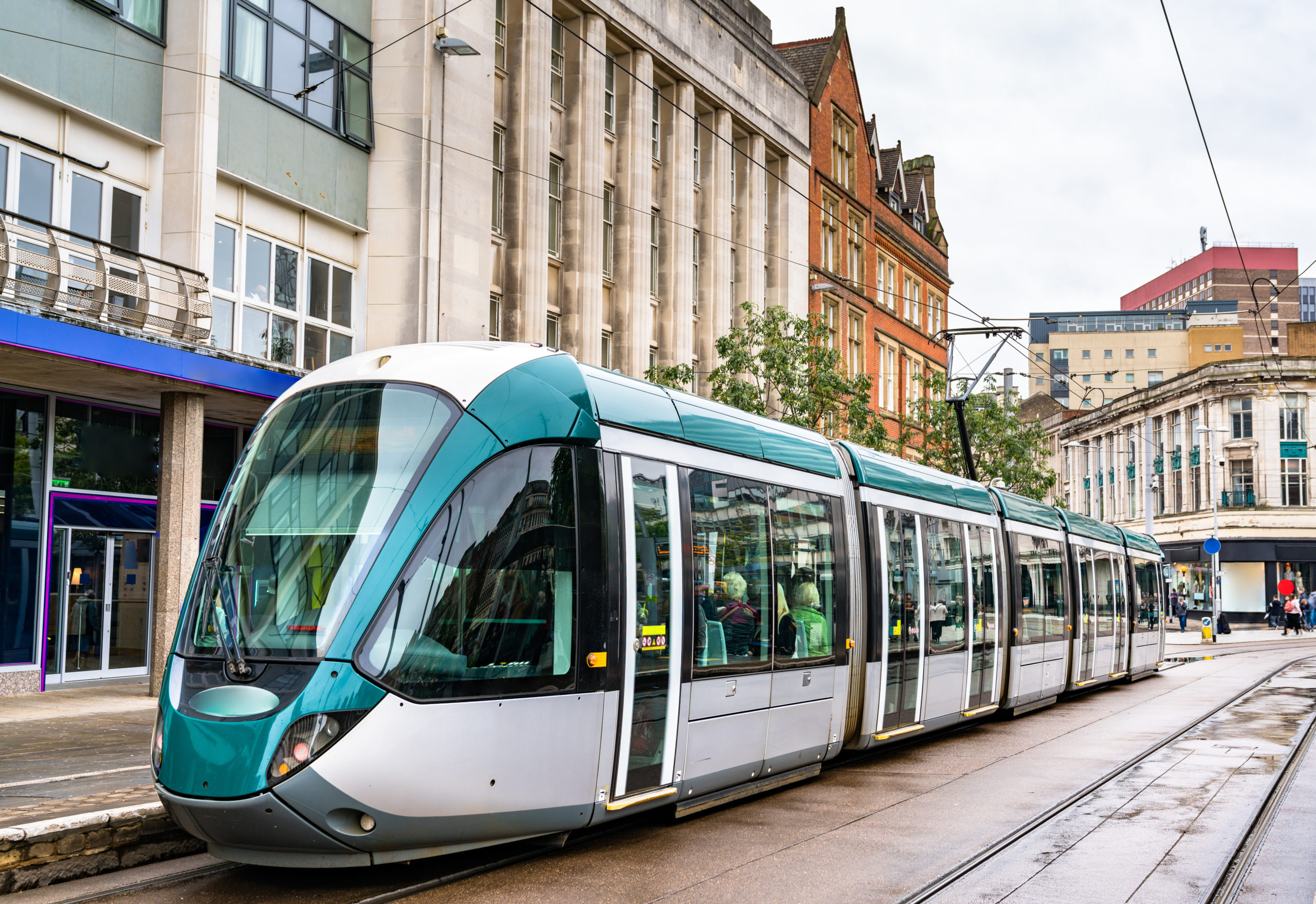Demonstrating Decarbonisation: How Local Authorities and Innovators are Transforming Transport
With transport remaining the biggest contributor to UK emissions, it is crucial that we support and develop interventions to address this. In 2023 the UK government reported that transport accounts for 29% of all emissions, with domestic transport, particularly road transport being the defining culprit. In addition, there are other negative impacts to consider when understanding our transport system, such as air quality, congestion and the amount of people who are killed or seriously injured (KSI) on our roads. Considering this, we must be looking at how innovation can solve these challenges, alongside supporting our transport system in the transition to become net zero.

Place-based
A blanket approach to transport decarbonisation will not work. Different places have different geographies, travel patterns, infrastructure, and socioeconomic conditions. A rural area may need better public transport options, while an urbanised town or city might focus on cycling and walking infrastructure. Plus, there are design aspects such as heritage status, accessibility and space constraints that need to be considered. Interventions taken for transport decarbonisation need to be customised and should be both local, and place-based.
Place-based approaches to transport decarbonisation ensure that solutions tailor to the specific needs, contexts, and challenges of different localities, rather than applying a one-size-fits-all strategy. There are huge benefits to taking a place-based approach, not just from an economic perspective. Positive impacts include:
- better public buy-in, where local stakeholders are involved to reflect their lived experience and needs, ensuring trust is built and support is gained,
- more effectively allocated resources to allow for interventions that target the main sources of emissions within the specified locality,
- and lastly, taking a place-based approach can support in other local goals, such as improving air quality, access to jobs, or health outcomes, in addition to decarbonisation targets.
Transport decarbonisation demonstrator competition
To address this, in November 2023, the Transport Decarbonisation Demonstrator competition was launched by Innovate UK, funded by the Department for Transport, to support projects that were combining solutions for local authorities to reduce their transport carbon emissions, alongside working closer with innovative businesses to develop these solutions. Scope requirements specified that the consortium needed at least one local authority, enabling the place-based perspective to be given.
In addition to this, the competition was supported by the understanding that rural places face different challenges, and therefore require different solutions. Rural places are often considered ‘hard to decarbonise’ from a transport perspective, due to their unique geographies. Therefore, at least half of the funding was reserved to support rural innovation solutions to transport decarbonisation.
Through a highly competitive process, with lots of applications, seven successful projects were awarded funding as part of this competition. Across these, nine different local authorities were represented. The projects were:
- Development of an EV-Enabled Route Planning Tool for Domestic Waste Collection with Supporting Local Authority eRCV Trials with South Oxfordshire District Council and Vale of White Horse District Council
- IONA Drone Delivery Initiative with Argyll and Bute Council
- HomeRun: School Travel Evaluation Platform (STEP) with Essex County Council
- Transforming Rural Bus Shelters into Modular Mobility Hubs with East Lothian Council
- Paua PINS (Private Infrastructure Network Solution) with Oxfordshire County Council and Suffolk County Council
- Levelling up Coventry’s EV adoption journey with Coventry City Council
- Cornwall e-Mobility Hubs – A Blueprint for Rural Micromobility with Cornwall Council
Competition outcomes
These projects, running from June 2024 to March 2025, represented a fascinating range of solutions to transport decarbonisation, cutting across how we can increase access to active travel modes, to how we may enable those without driveways to enhance their electric vehicle charging range from their home.
For instance, East Lothian Council were working with Quarterre Studio and CENEX as part of the Transforming Rural Bus Shelters project, to investigate how the re-tendering of bus shelters within the region could lead to designed-in features for mobility hubs. These mobility hub designs needed to not only be practical and useful to residents and visitors, but fit the often-limited space constraints, alongside tying into the conservation status of the region. Through their project they held a range of community engagement, including with schools and youth groups, to get their perspectives and make sure they felt a sense of ownership and direction over the designs. As a result of the work they did, a tool was created that utilised the site-specific parameters and design priorities to generate a list of ordered design recommendations, helping local authorities to set priorities for more effective and user-friendly bus shelters.
Another project, aiming to understand the unique travel patterns of the region, was the HomeRun STEP project. Working with Essex County Council, the lead partner Sustainable Commute Solutions Limited, were developing HomeRun, a digital tool to help local authority better understand the home-school travel journeys that were being made in their region. This project particularly focused on the more rural locations of Essex. Using cutting-edge artificial intelligence to predict school travel habits, the app could evaluate factors such as distance, weather, children’s ages, and the propensity to cycle and elevation on the route, to name just a few. This information could then provide strategic intelligence to local authorities, transport planners and housing developers to inform them of which interventions they could consider, and where their highest impact priority schools were.
Future ready involvement
As part of the competition, the associated Local Authorities were invited to join the Future Ready cohort, as part of Innovate UK’s Net Zero Living Programme. Through this, they gained access to a network of over 52 Local Authority representatives, where they could engage with them through an online platform, virtual co-learning meetings and quarterly in-person event gatherings.
As part of their involvement in the Future Ready cohort, Urban Foresight – the convenor of the group, carried out a focus group session with the TDD local authority participants, alongside a handful of other LAs with transport focussed projects within the cohort, to bring them together and discuss their experiences and learnings when looking at the challenges they face with decarbonising the local transport system.
The outcomes from this session highlighted a range of considerations for local authorities such as the importance for cross-sectoral working, as transport and its associated impacts/inputs can sit across different teams within a local authority, and the need for ‘stepping-stone’ procurement packages, as big transport changes, such as purchasing a fleet of electric buses all at once, is not financially feasible.
Conclusion
With the Transport Decarbonisation Demonstrators, we learnt that the wonderful variations of projects and outcomes, the high level of applications into the competition (particularly during a busy Christmas season!) and the appreciation from both businesses and local authorities that place-based approaches are more effective, demonstrated the immense impact a programme such as TDD can deliver.
Related programme

Net Zero Living
A new wave of place-based innovation is transforming UK towns, cities and communities, today. Innovate UK’s £60 million programme is helping local authorities and businesses work together to deliver new solutions that improve local services and open markets for economic growth.

